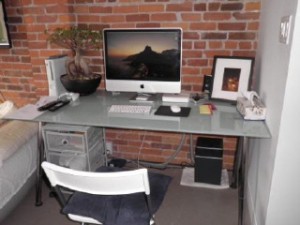Financial wellbeing – what is personal financial planning?
 The point of personal financial planning is to work out a way of achieving the things that are most important to you in life. So what is important to you? The answer is different for everyone.
The point of personal financial planning is to work out a way of achieving the things that are most important to you in life. So what is important to you? The answer is different for everyone.
For some it could be the dream of winning an Olympic gold medal or taking an around the world holiday. For others it could be a house in the suburbs and a good education for the children, or saving for retirement.
Regardless of the broad range of individual goals, the common thread to goal achievement is financial wellbeing. That means having enough money to do the things you really want to do, staying healthy and not having to sacrifice the fun in your life.
That is a long way from making the bland statement, “I want to be a millionaire!” Accumulating money just for the sake of it is simply being greedy. If your focus is 100% on being rich, then you are likely to be sacrificing your health and missing the fun in life.
For example, (and this example happens often) if your partner leaves you for someone else while you were always working on accumulating riches, where’s the fun in that?
What is the point of being rich if you are in poor health and having no fun? Is that really what you want your life to be about?
Many people dream of riches but most would happily settle for enough money to do the things they want to do now, and the means of generating enough money to finance the future they want as it arrives.
In the process, you may or may not become a millionaire, but does that really matter? These days, you can own 3 residential properties and be a millionaire on paper, but it is a meaningless concept. You won’t be the first or the last millionaire who is desperately unhappy or unhealthy.
Financial wellbeing equates to balance in your life. It means having focus on money to finance your life, leading a healthy life, and having fun in your life.
If the three can be combined in the same activity, that’s great! But most often, they can’t. So there must be room for all; and getting to where that balance feels right for you is the point of personal financial planning.
If you are looking for information on the calm positive mindset requires for financial wellbeing, check out http://www.aikido-secrets-to-calm-success.com
Until next time!
Gary








